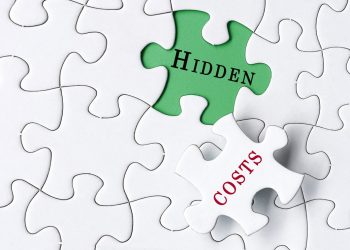 (MCT)—Being disorganized can lead to impulse spending, as can buying lottery tickets. Meanwhile, loneliness can cause materialism, and just thinking of how something smells can induce you to buy more.
(MCT)—Being disorganized can lead to impulse spending, as can buying lottery tickets. Meanwhile, loneliness can cause materialism, and just thinking of how something smells can induce you to buy more.
Those are findings from just a few academic studies recently in the field of consumer behavior. Many studies, mostly aimed at marketers, research why consumers make the choices they do, what pushes them to buy or not buy, or opt for one product over another.
The results can be instructive for consumers too, if for no other reason than to realize that we don’t always make logical, rational buying choices.
Consumers’ self-control and materialism are common topics of study.
“Materialism, a set of beliefs about the importance of possessions in a consumer’s life, is associated with a host of negative outcomes,” writes author Hyeongmin (Christian) Kim of Johns Hopkins University in a recent study. He points to impulse buying and excessive debt as results of poor self-control.
It can affect your happiness.
“It is well-documented that materialistic consumers struggle with their materialistic longings and sometimes show poor self-control,” Kim wrote. “Self-control is perhaps one of the most important attributes that a person needs to have a successful life.”
Here are some recent findings about consumer behavior—specifically, our materials and lack of self-control—published in the Journal of Consumer Behavior.
—Messy spendthrifts? A disorganized environment can leave you feeling out of control, which drains your reserves for future self-control, leading to poor decisions including impulse spending, conclude Boyoun Grace Chae of the University of British Columbia and Rui Juliet Zhu of Cheung Kong Graduate School of Business.
For example, in experiments the authors found that people in a cluttered room were more likely to pay higher prices for products, such as a TV or movie tickets, compared with people in an organized room, according to the study “Environmental Disorder Leads to Self-Regulatory Failure.”
Researchers predicted that if a person was responsible for his or her own messy environment—rather than ones created by researchers in the experiments—the effect would be even more depleting to self-control.
“Our research has crucial practical implications concerning public health and consumer well-being,” the authors wrote.
Maybe the takeaway is to tidy up your environment—clean that sink full of dishes, put away the clothes on the bedroom floor, clean your desk at work—to help preserve the energy you need to be a smarter consumer.
—Sell with smell. Another hit to your self-control could come if marketers used advertisements to help you imagine what foods smell like, such as chocolate chip cookies or fresh-baked bread, according to Aradhna Krishna of the University of Michigan, Maureen Morrin of Temple University and Eda Sayin of Koc University.










